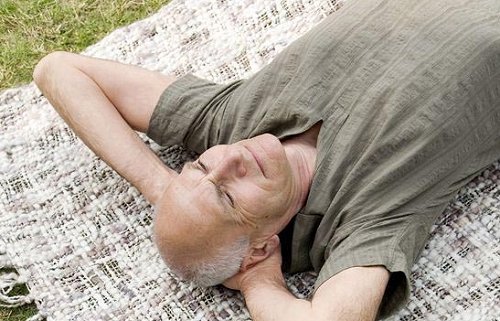

Nothing feels quite as good as sitting down after a long day, breathing in deeply and just letting yourself  relax. With age comes change, whether it is the state of your health, the loss of friends, moving, or financial instability. One way or another, the “golden years” can have their own stresses.
relax. With age comes change, whether it is the state of your health, the loss of friends, moving, or financial instability. One way or another, the “golden years” can have their own stresses.
Stress, as many of you know, is a quiet killer. It’s not just a feeling that lives inside your head, a harmless emotion. Stress causes a physical response within your body. It causes your blood pressure and heart rate to rise, and releases hormones like cortisol and adrenaline into your bloodstream. A little bit of stress can be good, it can keep you alert and motivated, however, chronic stress and the physiological changes it causes can put a serious strain on your health.
This is why it’s so important to make time in your daily life for some sort of relaxation. Here are some of the benefits you can gain from learning how to relax:
Be Happier
It comes as no surprise that stress affects your mood. If cortisol, also known as the “stress hormone”, is present for a prolonged amount of time, it can deplete you of serotonin and dopamine, which in turn can cause you to become depressed.
Stay Healthy
By relaxing, you can potentially avoid many of stress related diseases and health problems, including heart disease, asthma, diabetes, digestive problems, weakened immune system, Alzheimer’s, accelerated aging and premature death.
Make Better Decisions
A recent study showed that stress actually changed how people weighed their decisions. It is surprising that those who were under a lot of stress tended to focus on the potential positive outcome of a situation rather than the negative. This may sound like a good thing, but it’s always important to weight the pros and cons evenly, especially when making an important decision.
Now that we’ve explored some of the benefits of relaxing and de-stressing, here are some different relaxation methods to help you relax:
Breathing Meditation
This type of meditation focuses on deep breathing. It can be practiced almost anywhere, providing a simple way to decrease your stress levels and improve your quality of life.
• Begin by sitting comfortably, with your back straight. Put one hand on your chest and the other on your stomach.
• As you breathe in deep through the nose, you should feel the hand on your stomach move.
•Contract your abdominal muscles as you breathe out through your mouth.
•Throughout this exercise, the hand on your chest should move very little, while the hand on your stomach should continue to rise and fall with your breath. You can also do this exercise while lying on the floor, using a small book on your stomach to make sure your stomach is rising and falling.
Muscle Relaxation
This method has you tensing and releasing different parts of your body, creating the awareness of tension, and how to release it. Begin by making yourself comfortable, relaxing your whole body. Start to tense and relax different parts of your body. Begin at your feet and work your way up. See how your muscles feel as you tense them up, and then how loose they feel as the tension fades away.
Body Scan
This exercise has you focus on the different parts of your body, building a mind-body connection. It’s a great alternative to muscle relaxation especially if you have health problems that could be aggravated by tensing muscles.
Block out at least 15-30 minutes of time and lay down somewhere comfortable. Notice the points of contact your body is making. “Scan” your body with your mind. Which parts feel tense? Make an active effort to relax those parts. Actively connect with the your body. What sensations are you feeling, what temperatures? Move your way through your body, from your toes to the top of your head. The final step is to connect your whole body by scanning your skin. How does it feel? What temperature is it?
By the end of this exercise you should feel relaxed and connected to your whole body.
Author: Kimberly Recor, staff writer at Designing Brighter Tomorrows
© 2014 Designing Brighter Tomorrows, Inc.
This site is for information only, and is for your voluntary use at your own risk. See Terms of Use